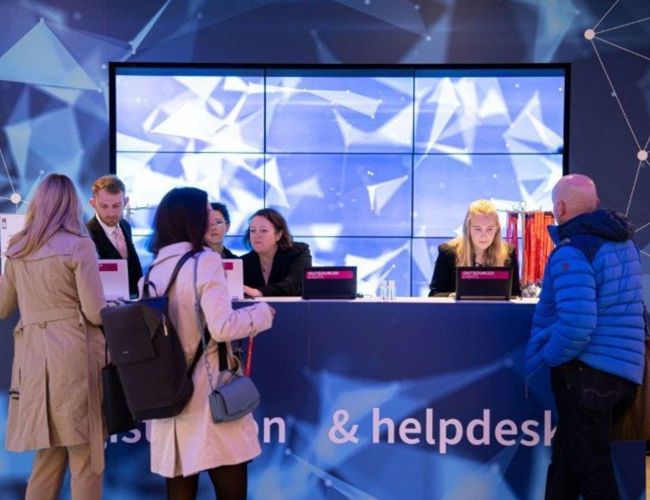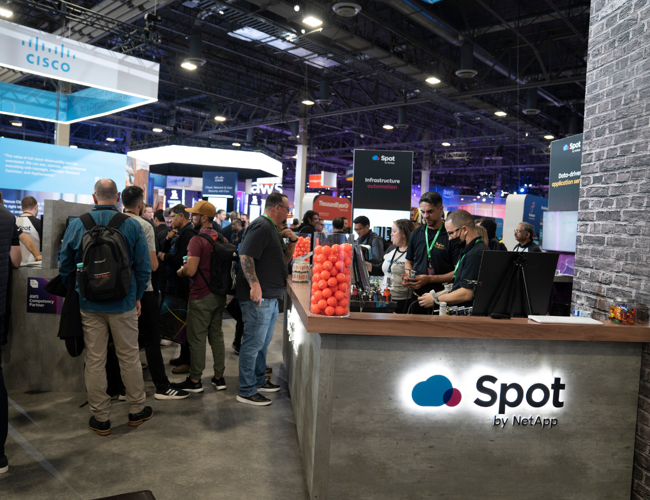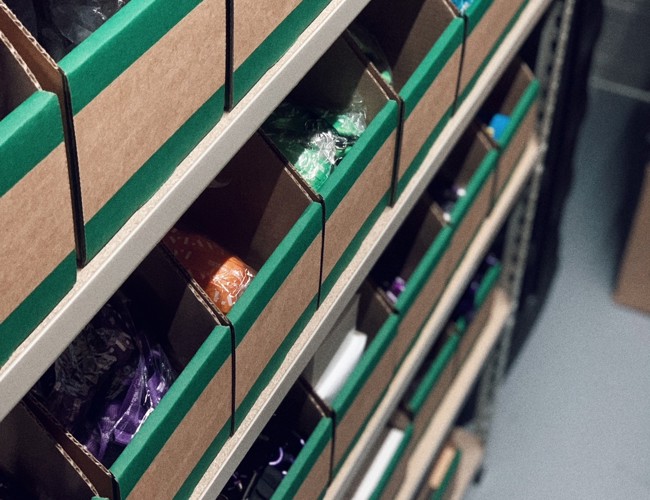How Outsourced Events is Working From Home

During the Covid-19 pandemic the global workforce have had to adapt to a new working environment. With family or partners also communicating through loud team calls, children who might need help with homework, the loss of continuity and structure, it can all become disorienting and strenuous. However, not travelling to the office can also present unexpected opportunities to build a better work-life balance and to customise your own working day. As we begin emerging from the Covid pandemic it’s becoming more apparent that the working environment is unlikely to return 100% to offices.
In this blog, we discuss the differences we have encountered whilst working from home compared to having a full working day in the office pre-Covid.
Introduction to the Authors
Following on from Eden’s blog, One Year On, which reflected on the changes the company has gone through since WFH, Amy and Aman give more personal reflections of their different experiences.
Amandeep Dhillon, Finance Assistant

I have worked at OE for more than three years. Adjusting to working from home in this industry was an interesting experience as we had mostly dealt with onsite live events. However, working in the Finance department carries similar functions as any other company so it was not a huge disruption to continue doing this job virtually.
Amy Smith, Event Executive

Starting at Outsourced Events in mid-January 2021 was very daunting. We were back in another lockdown, which meant I’d be starting completely remotely. It’s strange to think now, a few months in, I still haven’t been able to meet any of the team in person.
I’d done small amounts of working at home before, normally when I needed time to focus on a budget or proposal without the distractions of a busy office! It’s very different being permanently based at home.
Starting a New Job Virtually
In terms of starting a new job, there were definitely some benefits. Instead of being overwhelmed by meeting 20 new people on my first day in the office I had a more scheduled introduction to the company. I was able to prepare for meeting members of the team instead of just being sprung upon at my desk. I’ve also been more relaxed as I’m in an environment I’m comfortable in and so the new job overwhelm has been much less than any other job I’ve started. However, the lack of office small talk and being able to peer over someone's shoulder has added some difficulties in getting to know the team and processes.
Benefits vs the Challenges of WFH
Working from home could benefit everyone. Whilst trying to remain connected and positive, you can work efficiently while preserving a satisfying home life – all without the pressure of a daily commute.
The added pressure of turning up to work on time, or getting home on time, as well as the commuting rush hour, all take a toll and could add to stress. It’s therefore essential to retain contact with your colleagues, and to develop a sense of belonging. Through collaborative workspaces such as Microsoft Teams, it has become easier to not only conduct meetings, but to have the chance to have that quick tea break or general chat with colleagues, just as you would in an office environment.
Workspace
Establishing an effective home office or workspace is vital if you want to stay focused and achieve work targets. Ensure you have adequate equipment available and enough space to work comfortably.
In the home environment family interruption was one of my biggest concerns as at certain hours of the day, the home transforms into a work environment. Being assertive and shutting out people, pets and distractions like a mobile, was the toughest goal to achieve, even though some of these things are inadvertently present in an office environment.
Something I think has helped with this is having a dedicated place to work. Both to make it super productive – having screens set up how you like, all chargers and notebooks within reach and some control over the physical distractions around you. But also, from a work life balance perspective. Being able to switch off at the end of the day can be a real challenge without leaving the office, so I’ve got a set up in the spare bedroom where I can close the door on it and try to forget about my to do list until the next day!
Healthy routines
Working from home can also introduce new challenges to your physical and mental well-being. Forming salubrious practices to guarantee that you do not fall into unhealthy behaviours is essential for long term well-being. One of the biggest hindrances I have personally come across when working from home is the merging of both work and home life. When in the office, there is almost an unheard rule of start and finish times, as well as lunch breaks. Whilst at home, you can often spill your work day over into the evening as well as into the weekends, possibly due to the stress of a greater workload during hectic event periods. This can also lead to a struggle with productivity, encouraging procrastination. I have found trying to develop cues to help with transitioning in and out of work mode, such as doing some form of exercise at the end of office hours, greatly helps create a balance.
Some great ways to enable you to work more efficiently are:
- Creating a to do list: discussing the list with a fellow team member or your manager can help to set clear goals for your workday/week.
- Prioritising the most important task before doing any other work may help to break tasks into smaller manageable pieces.
- Avoid multi-tasking where possible, focus on a single task at a time.
Wellbeing
I think one of the biggest shifts to being at home is wellbeing. It is safe to say Covid has affected both mental and physical wellbeing in the entire population. There has been an increase in loneliness and isolation, the uncertainty and everchanging nature of the whole situation has caused everyone’s mental health to be tested!
Can working from home make this worse? The change in routine definitely had a big effect at first and the lack of face-to-face interaction you have in an office can further the feelings of isolation. However, being at home can provide comforts and resources to help which may not be accessible in an office. I could put on a TV show to cheer me up at lunch or get some fresh air which always helps lift the mood.
My physical wellbeing on the other hand has massively improved. Having more time in my day to exercise due to not having to commute and having a kitchen downstairs has prevented as much snacking and relying on meal deals for lunch – being able to cook a nice meal is a huge benefit. However, this positive impact has only been enabled through creating healthy and positive habits like meal planning and creating that space between my work and home life.
Motivation
Something that has been a big adjustment for me is managing my productivity and motivation. Working full time again after a few months of temping was a bit of a shock to the system. By lunch time I felt exhausted and keeping motivated throughout the afternoon without an office of co-workers, and the snacks that come with them, was very difficult at first. Learning new techniques to stay motivated at home has been a big learning curve.
One of the hardest factors in working from home can be a lack of motivation. As you are not surrounded by people or colleagues, the feeling of demotivation is present. There are many ways to try to combat this such as recording achievement, celebrating success (no matter the size) and maintaining good relationships. Through our company Wellbeing Team we have created six top tips to make a difference in the workspace, these are small considerations that can have a big impact on others’ day:
- Only use the all-team chat for something that concerns all/most of the team.
- Be mindful of how you are communicating on email and Teams.
- Make sure you take your lunchbreaks and be courteous of others taking their breaks.
- Be present during meetings – act as if you are sitting in a meeting room with them.
- Acknowledge others' successes and efforts.
- Keep moving throughout the day, take time to stretch every 30 mins.
Communication
Something I think that is really important about WFH is still having those touch points with the whole team, whether an organised social or a gift in the post, it helps bring the team together. Most recently we had a virtual cooking class, it was such a nice way to come together and enjoy some fantastic food.
During the pandemic Outsourced Events has introduced companywide calls tri-weekly, with calls given headline topics we have worked to ensure that everyone is kept up to date with other departments and projects.
Working in an office environment, those tri-weekly morning meetings can go unmissed (especially in Finance). Having the ability where the whole team gets together three times a week to catch up on workload, new prospects and the business as a whole is helpful and has ensured that the team is on the same page. Having a weekly catch up with the main team is helpful as it allows us to iron out any previous issues, or any issues going forward and how better to deal with them.
For me team meetings have also provided an opportunity to engage with the wider team, helping me get to know the individuals and the wider company culture; with some colleagues this is my only weekly engagement with them.
Our Finance team has weekly catch ups which has provided an important arena to discuss the nature of our tasks and the business my team is working on that week. On a more micro level, I converse with my manager every day as we work closely together.
When I started, I had daily calls with my line manager to help get me up to speed with projects and get back into the routine of working. These have now reduced to one a week but with plenty of messaging back and forth during the week; it helps us feel like a team rather than us all working individually. Whilst working on something particularly challenging, a big data upload for example, project teams come together on a call and walk through the process just like we would in an office, instead of leaving it all to one person to work on. This helps share the pressure with bigger tasks – a combination of Teams and screen sharing really is a life saver when WFH.
Socialising
My experiences of socialising with co-workers has normally happened face-to-face, going for a quick lunch or a drink after work, with sometimes more organised socials like escape rooms and karaoke nights! And although I am itching to meet everyone properly and be able to do stuff with the team in person, I do feel like I have been able to get to know a lot of the team pretty well, from our cooking class to team catch-ups throughout the week. It will be amazing as the roadmap progresses for the OE team to come together and socialise again. I am sure we are all looking forward to being able to celebrate that first face-to-face event with some nice food (and maybe wine!)
Has the company culture changed since moving to the virtual workspace (birthdays, celebrations, general culture)? Whilst there is an obvious shift in company culture as the team work from home, we have tried to keep up milestones. Pre-Covid, celebrations like birthdays, company picnics, world celebrations were commonplace and we have tried to replicate these as best as we can whilst also introducing a few exciting new activities. Virtual hang outs, cook-a-longs, wellbeing tasks are all part of the new company culture we hope to implement even after we move back into a physical work environment.
Closing Notes
Although working from home may not always be perfect, it seems to be here to stay in a much bigger way than before Covid. Teams everywhere have enjoyed increased flexibility and the joy of wearing slippers to work. Over the next few months many offices will be planning for a return to offices and the introduction of hybrid working. The main contributing factor as to how well this will work seems to be communication, both within project/work teams and across the wider company. Hopefully as things start getting back to normal outside of work, we can carry forward what we have learnt over the last year to ensure everyone’s working routine suits their needs both to maximise productivity and increase wellbeing.
To learn more about the Outsourced Events team check-out our social media and monthly employee spotlights. If you need any event assistance or would like to discuss our services, get in touch today to see how we can help you tomorrow.
Our Latest Knowledge & Insights

Turn your corporate event into must-see video content
The most successful corporate event videos aren't afterthoughts; they're strategically planned content that serves specific business objectives. Read our article to find out how to maximise content creation opportunities at your next event.
Read More
The power of video: transforming corporate events into unforgettable experiences
When planning a corporate event, integrating professional video production can be a game-changer for your entire event. High-quality video elevates audience engagement, extends your event's reach and captures the essence of your brand in a way that static content simply can't.
Read More
Outsourced Events wins bronze for ‘Best Agency’ at Conference and Events awards 2025
Outsourced Events is proud to announce that we have been awarded Bronze in the 'Best Agency' category at the Conference and Events Awards 2025. This recognition is a great honour for us and reflects the hard work and dedication of the OE team.
Read More






